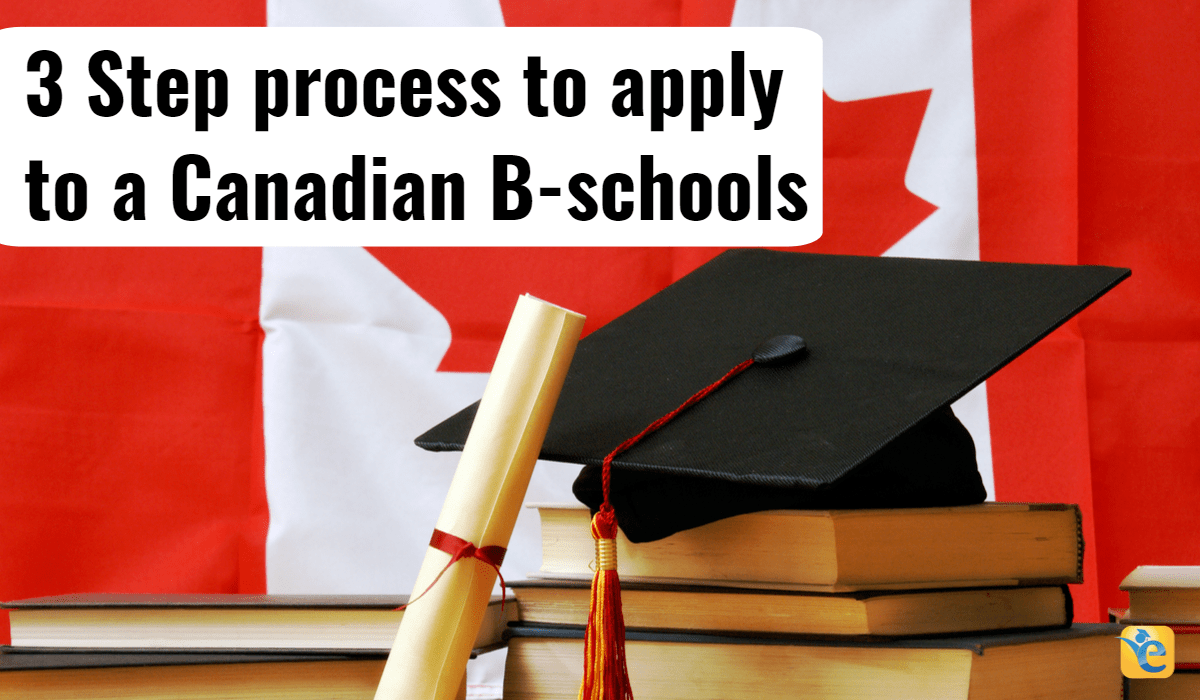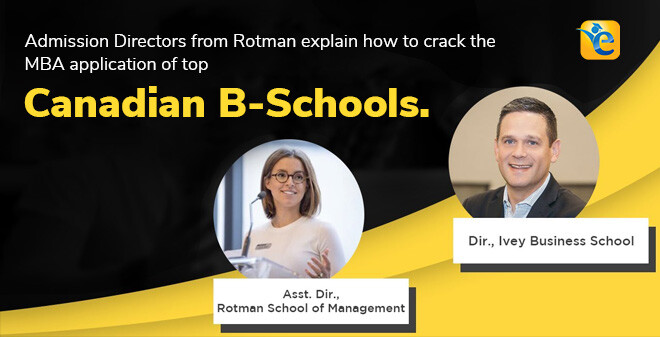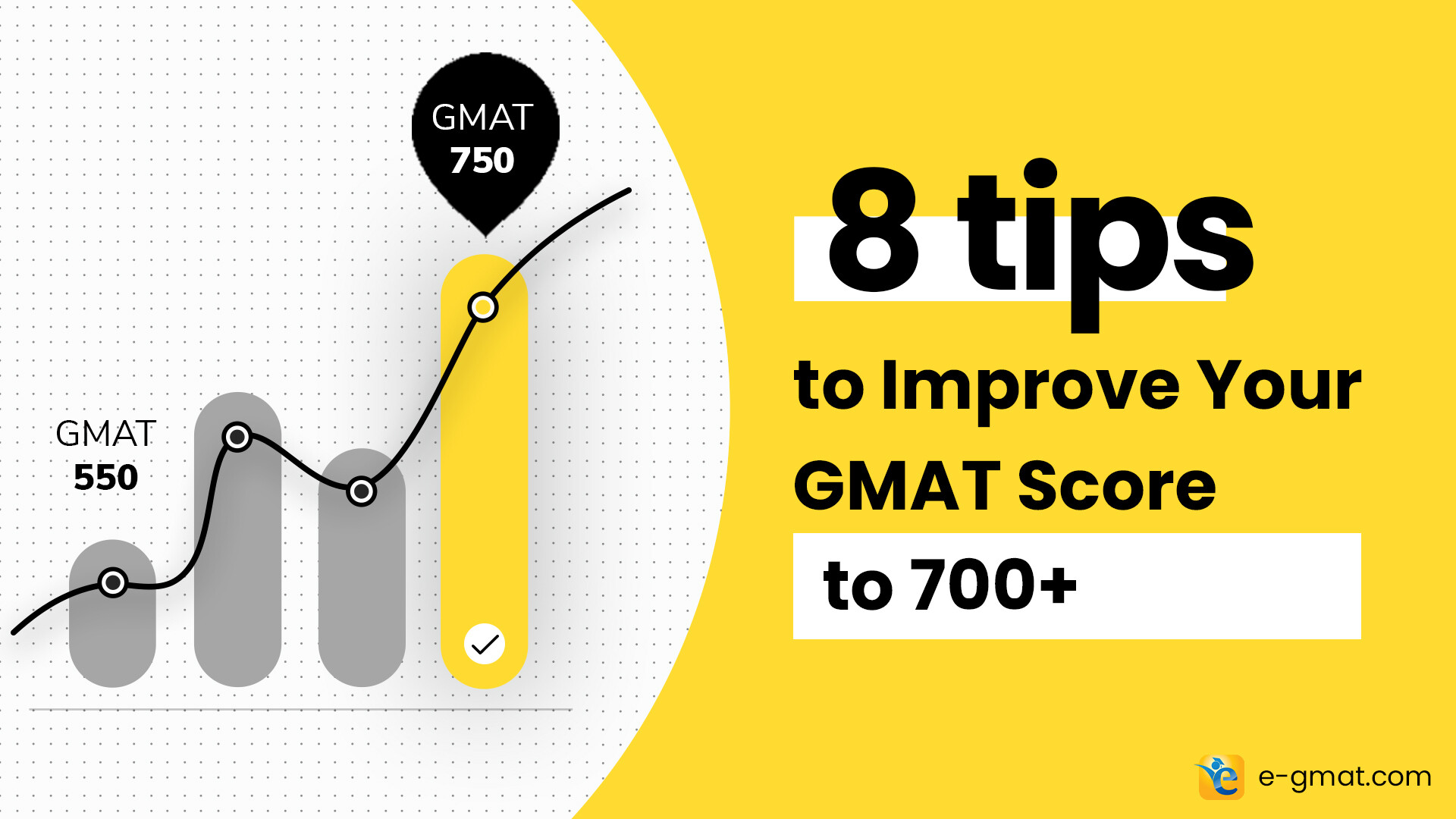MBA in Canada is a 1 to 2-year degree program which offers a good return on investment. There are Canadian universities with accelerated MBA programs, which can be less than a year. For instance, the Rotman School of Management offers a full-time MBA for two years and a part-time MBA for up to 32 months. Similarly, Ivey Business School offers an accelerated MBA for eight months or a one-year MBA program.
Studying MBA in Canada opens a path to working with top global companies while living in diverse, multi-cultural global cities. What’s more? Canada’s friendly immigration policies also pave the way to getting a Green card in the United States! Moreover, according to a survey, MBA in Canada has become one of the top study destinations in 2023. So, what makes it such a desirable country to pursue an MBA?
Watch the video on why MBA in Canada is so popular:
This article talks about the top business schools in Canada, Salary post-MBA, eligibility criteria, and how you can apply to Canadian business schools from India or other parts of the world.
MBA in Canada 2023
MBA in Canada can be pursued in several cities like Toronto, Montreal, Vancouver, Ottawa, and more. Besides, with the current uncertainty surrounding the H1-B visa program in the U.S, Canada has quickly become a promising destination for international students.
To pursue an MBA in Canada, you must have a relevant bachelor’s degree obtained from a recognized institution and a decent IELTS score. Some of Canada’s best business schools grant admissions based on the GMAT score and ask for work experience.
The average tuition fees for the top business schools in Canada range from CAD 30,435 to CAD 31,856. However, the total cost of pursuing an MBA degree is different after adding additional expenses like living costs, books, supplies, etc.
Here is a brief overview of what you can expect if you plan to study for an MBA in Canada:
| Duration | 1 to 2 years |
| Competitive GMAT score | 600+ |
| Work experience | 2-3 years |
| Fees | CAD 22,000 to CAD 120,000 |
| Top MBA Colleges in Canada | Some of the Top MBA colleges in Canada are Rotman School of Management, Schulich School of Business, HEC Montréal, Desautels Faculty of Management, and Queen’s Smith School of Business. |
| MBA in Canada – Average Salary | CAD 82,670 |
| MBA Specialization | Marketing, Finance and Accounting, Project Management, Business Design, Consulting, Funds Management, Information System, etc. |
Learn about the post-MBA Visa and immigration conditions in Canada.
List of Top Business Schools in Canada
Based on the QS Top Universities ranking 2022, here is a list of the top B-schools in Canada:
- Rotman School of Management
- Queen’s Smith School of Business
- Ivey Business School
- Desautels Faculty of Management
- Schulich School of Business
- UBC Sauder School of Business
- Alberta School of Business
- John Molson School of Business
- HEC Montréal
- Rowe School of Business
- DeGroote School of Business
- Goodman School of Business
- Telfer School of Management
- Beedie School of Business
- Sobey School of Business
- Wilfrid Laurier University
- University of Victoria
- Haskayne School of Business
- Ted Rogers School of Management
- Edwards School of Business
Know about the top 5 business schools in Canada in detail here.
Are you planning to enroll in a Canadian business school? Let us help you conquer the first step of the process i.e., taking the GMAT. Take a free GMAT mock to understand your baseline score and start your GMAT prep with our free trial. We are the most reviewed online GMAT Prep company with 2500+ reviews on GMAT Club.
Rotman School of Management
Average GMAT score: 674
Average work experience: 4 years
Full-time MBA fees Canadian student: CAD $92,540
Full-time MBA fees International student: CAD $138,441
Median Base Salary (2021): CAD $92,000
Take a look at Rotman’s latest employment report and class profile.
Queen’s Smith School of Business
Average GMAT score: 654
Average work experience: 4.2 years
Full-time MBA fees Canadian student: CAD $83,795
Full-time MBA fees International student: CAD $105,100
Average Base Salary (2021) : CAD $88,270
Ivey Business School
Median GMAT score: 540-770
Average work experience: 5.5 years
Full-time MBA fees Canadian student: CAD $83,250
Full-time MBA fees International student: CAD $123,500
Average Base Salary (Base + Bonus): CAD $122,525
Desautels Faculty of Management
Average GMAT score: 675
Average work experience: 5.5 years
Full-time MBA fees Canadian student: CAD $82,500
Full-time MBA fees International student: CAD $99,500
Median Base Salary: CAD $85,500
Take a look at McGill’s latest employment and class profile.
Schulich School of Business
Average GMAT score: 363
Average work experience: 5.5 years
Full-time International MBA fees Canadian student: CAD $73,000
Full-time International MBA fees International student: CAD $112,250
Average Base Salary: CAD $97,725
Take a look at Schulich’s latest employment and class profile.
UBC Sauder School of Business
Competitive GMAT score: 635
Average work experience: 5 years
Full-time MBA fees Canadian student: CAD $93,658
Full-time MBA fees International student: CAD $107,883
Average Base Salary (2021) : CAD $85,289
Alberta School of Business
Competitive GMAT score: 630
Average work experience: 5.4 years
Full-time MBA fees Canadian student: CAD $54,000
Full-time MBA fees International student: CAD $60,000
Mean Total Salary: CAD $93,252
John Molson School of Business
Competitive GMAT score: 580
Average work experience: 6 years
Full-time MBA fees Canadian student: CAD $15,600 (non-Quebec)
Full-time MBA fees Canadian student: CAD $6,900 (Quebec)
Full-time MBA fees International student: CAD $47,900
Mean Salary: CAD $104,321
HEC Montréal
Average GMAT score: 570-630
Average work experience: 3 years
Full-time MBA fees Canadian student: CAD $20,000 (non-Quebec)
Full-time MBA fees Canadian student: CAD $9,300 (Quebec)
Full-time MBA fees International student: CAD $54,000 until summer 2022
CAD $59,000 from fall 2022
Average Base Salary: CAD $90,754
Rowe School of Business
Average GMAT score: 550+
Average work experience: 2 years
MBA fees Canadian student: CAD $54,575
MBA fees International student: CAD $82,205
Average Base Salary: CAD $74,000
DeGroote School of Business
Average GMAT score: 600
Average work experience: 4 years
Full-time MBA fees for Canadian students: CAD $9,005.28
Full-time MBA fees International student: CAD $21,457.56
Starting Average Base Salary: CAD $77,000
Goodman School of Business
Minimum GMAT score: 550+
Full-time MBA fees Canadian student: CAD $26,425
Full-time MBA fees International student: CAD $73,642
Starting Base Salary Range: CAD $60,000 – $70,000
Telfer School of Management
Average GMAT score: 570 to 770
Full-time MBA fees Canadian student: CAD $28,000
Full-time MBA fees International student: CAD $64,000
Starting Mean Base Salary: CAD $68,000
Beedie School of Business
Average GMAT score: 620
Average work experience: 6 years
Full-time MBA fees Canadian student: CAD $43,836
Full-time MBA fees International student: CAD $60,380
Average Base Salary: CAD $106,244
Sobey School of Business
Average GMAT score: 590
Average work experience: 5 years
Full-time MBA fees Canadian student: CAD $31,000
Full-time MBA fees International student: CAD $43,000
Average Salary: CAD $69,680
Wilfrid Laurier University
Average GMAT score: 600
Average work experience: 2 years
Full-time MBA fees Canadian student: CAD $29,807
Full-time MBA fees International student: CAD $49,738
Average Salary: CAD $61,669
University of Victoria
Average GMAT score: 550
Work experience: 2 years
Full-time MBA fees Canadian student: CAD $27,034
Full-time MBA fees International student: CAD $40,118
Starting Average Base Salary: CAD $104,000
Haskayne School of Business
Average GMAT score: 550+
Day-time MBA fees Canadian student: CAD $12,609
Day-time MBA fees International student: CAD $29,087
Starting Average Base Salary: CAD $97,000+
Ted Rogers School of Management
Average GMAT score: 668
Full-time MBA fees Canadian student: CAD $21,286
Full-time MBA fees International student: CAD $50,616
Starting Average Base Salary: CAD $85,000
Edwards School of Business
Average GMAT score: 550
Average work experience: 7 years
Full-time MBA fees Canadian student: CAD $30,306
Full-time MBA fees International student: CAD $60,612
Starting Average Base Salary: CAD $98,992
Are you planning to enroll in a Canadian business school? Let us help you conquer the first step of the process i.e., taking the GMAT. Take a free GMAT mock to understand your baseline score and start your GMAT prep with our free trial. We are the most reviewed online GMAT Prep company with 2500+ reviews on GMAT Club.
Post-MBA salary in Canada
According to PayScale, the average salary of an MBA graduate in Canada is CAD 85,000. The CEO and CFO earn the highest salary of CAD 151,349 and CAD 153,841, respectively. Here are some of the job profiles and salaries post-MBA in Canada:
| MBA Jobs in Canada | Average Salary (CAD) |
| Management Consultant | $ 86,979 |
| Financial Controller | $ 94,364 |
| Financial Analyst | $ 61,975 |
| Marketing Manager | $ 74,351 |
Some of the top companies in Canada that hire MBA graduates are KPMG, Deloitte Consulting, TD Canada, Canadian Imperial Bank of Commerce, and many more.
Another report by Emolument points out that the average salary post-MBA in Canada is approx. CAD 86,000. However, if you pursue an MBA from top universities, then the average base salary is above CAD 95,000.
Post-MBA salary at Top Canadian business schools
Take a look at the post-MBA salary of the top Canadian business schools:
| Top 10 Canadian business schools | Median Base Salary (CAD) |
| Rotman School of Management | $92,000 |
| Queen’s Smith School of Business | $88,270 (Average) |
| Ivey Business School (Base+Bonus) | $107,850 (Average) |
| Desautels Faculty of Management | $85,500 |
| Schulich School of Business | $97,725 (Average) |
| UBC Sauder School of Business | $89,681 (Average) |
| Alberta School of Business | $93,252 |
| John Molson School of Business | $86,0887 |
| HEC Montréal | $83,750 |
| Rowe School of Business | $69,939 (Average) |
Confused about whether to pursue MBA or not? Watch this video where we talk about the top 5 reasons to pursue an MBA:
Eligibility requirements to pursue MBA in Canada
To study for an MBA in Canada, you must first apply to a Canadian university before you apply for a study permit. Some of the most common admission requirements are:
- Relevant undergraduate degree
- Work experience
- TOEFL and IELTS score
- A good GMAT score
Canada has opened a New Visa Stream for Indian students where your study permit is prioritized if you live in India.
The application process to study MBA in Canada can be lengthy, and thus it’s advisable to apply at least 15 months before. You can download the application form for most of the universities on their official website. Different universities/colleges have different admissions criteria.
List of documents required
- Academic records: Transcripts
- IELTS/TOEFL: English Proficiency
- Work experience Proof
- Bank statements for financial proof
- Letter of Recommendation
- Statement of Purpose
- Related documents related to visa
How to apply to a Canadian business school?

Step 1: Check the admissions requirements
Every B-school has a different set of criteria. Still, the most common one is having an undergraduate degree equivalent to an undergrad degree in Canada.
This is because each country’s education system is different and Canadian b-schools want to make sure that what you have been taught in your bachelor’s is similar to what is taught to a bachelor’s degree recipient in their country.
Apart from this, you are also required to take the IELTS or TOEFL to prove your proficiency in English. The required IELTS score range from 6.5 to 7, whereas for TOEFL, it is 86 to 100.
The English-language proficiency scores are mandatory and cannot be waived off most of the time, and if you are an international student, you are generally required to take the test. However, if you meet one of the following criteria, you can be eligible to apply to Canadian universities without IELTS or TOEFL:
– The country that you are from is English-speaking
– You have studied in an English-medium school for four years
– You are ready to take English courses of the b-school for a semester or a year
– You are pursuing an Online Course
Some of the top Canadian universities also require a good GMAT score with relevant work experience. The average GMAT score required to pursue MBA in Canada can range from 550 to 670.
However, for the top 5 Canadian business schools, the average GMAT score is 660+, which is lower than the top US ( 720+) and European b-schools (690+).
In general, 2 to 5 years of work experience is required to pursue MBA in Canada. However, the average work experience for the top 5 Canadian b-schools is approx. 4 years, which is similar to that of the top US and European b-schools.
Step 2: Review the application process
Canadian business schools, in general, have two intakes – Fall and Winter. Fall intake, which is a popular intake among international students, starts in September, and winter intake starts in January, which can act as an alternative if you miss the September intake.
MBA schools in Canada have either a fixed application deadline or a rolling basis application process, or a mix of both, like any other US or European school. Once you know the application deadlines for your chosen b-school, you need to fill out an application form and submit it according to its instructions.
The application process to pursue MBA in Canadian universities is similar to US and European b-schools.
Generally, the application form will cover your personal details, academic background, work experience, entrance exam scores, essays, and letter of recommendation.
So, if you have applied to US or European b-schools, you can recycle most of your application material to apply to Canadian business school, which will save you time and money. Here is a list of standard documents that the Canadian business schools ask for:
– Official Academic transcripts
– English Proficiency test – IELTS/TOEFL
– Standardized test scores – GMAT/GRE
– Work experience proof
– CV
– Letter of Recommendation
– Statement of Purpose
The application process can differ for each business school, so it is advisable to apply 3 to 4 months before, which will give you enough time to complete your application and get your visa sorted out. Once you receive an acceptance letter from the business school, you can apply for a study permit.
Step 3: Apply for a student visa
Getting a student visa for Canada is much easier than in its neighbouring country, where almost 15 to 20% of applicants get rejected by US visa officers every year despite receiving admission for higher education in the USA. In fact, one in three international business school students agrees that the ease of obtaining a student visa is what attracted them to Canada.
For your student visa, you need an acceptance letter from a designated learning institution (DLI). So do check out if your selected b-school is DLI approved. You will also require a valid passport and financial proof to support yourself and your family members who will come with you to Canada. Moreover, you may also need to submit a letter of explanation stating how your educational and work background prepares you for a rigorous MBA program and how having the MBA qualification will enhance your career and help you get to the next level.
The visa process for most international students is completed through an online portal. You need to complete the relevant form and upload supporting documents, which will cost you approx. 120 US dollars and is valid for the length of your study program, plus an extra 90 days. The processing time for the study permit can vary depending on your country of residence and the volume of applicants received. For example, for an Indian applicant, it takes up to 12 weeks.
Result
Under your student visa, you can work up to 20 hours per week during your semesters and are free to work full-time during holidays. Just make sure that your visa includes a condition that says you can work on or off-campus.
Once you obtain your student visa, you are ready to fly to Canada!
Are you planning to enroll in a Canadian business school? Let us help you conquer the first step of the process i.e., taking the GMAT. Take a free GMAT mock to understand your baseline score and start your GMAT prep with our free trial. We are the most reviewed online GMAT Prep company with 2500+ reviews on GMATClub.
MBA in Canada – FAQs
To study MBA in Canada can cost you anywhere between CAD $20,000 to $60,000. To get into top business schools you can even end up paying more than $100,000.
The top 5 business schools to pursue MBA in Canada are:
1. Rotman School of Management
2. Queen’s Smith School of Business
3. Ivey Business School
4. Desautels Faculty of Management
5. Schulich School of Management
The average GMAT score required to pursue MBA in Canada can range from 550 to 670. However, for the top 5 Canadian business schools, the average GMAT score is 660+, which is lower than the top US ( 720+) and European b-schools (690+).







